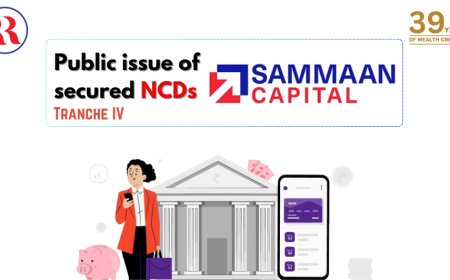11 Tips to Find the Best Mobile App Development Team for Your Startup
Find the ideal mobile app development team for your startup! Get 11 essential tips covering vision, budget, portfolio, UI/UX, and post-launch support for success.
In the dynamic world ofMobile For a startup, the mobile app isn't just a product; it's often the core of the business itself. Finding the right development team can be the difference between a groundbreaking success and a costly misstep. With countless options available, from local agencies specializing in App Development New Jersey to global outsourcing partners, making the right choice requires careful consideration. Its about finding a partner who not only has the technical skills but also understands your vision, embraces your startup's agility, and can scale with your growth.
Here are 11 essential tips to guide you in finding the best mobile app development team for your startup:
1. Clearly Define Your App Vision and Requirements
Before approaching any development team, you must have a crystal-clear understanding of your app's purpose. What problem does it solve? Who is your target audience? What are the core features of your Minimum Viable Product (MVP)?
-
Why it matters: A well-defined vision acts as your blueprint. It helps developers understand the scope, complexity, and unique selling points of your app, enabling them to provide accurate estimates and solutions. Without this clarity, you risk miscommunication, scope creep, and ultimately, an app that doesn't meet your expectations or market needs.
2. Determine Your Budget and Timeline Realistically
Startups often operate with finite resources. Having a realistic budget and timeline from the outset helps you narrow down potential partners and manage expectations.
-
Why it matters: Different development teams have different pricing structures (hourly, fixed-price, dedicated team). Knowing your financial boundaries helps you identify teams within your affordability range. A clear timeline also ensures both parties are aligned on delivery expectations, crucial for a startup aiming for rapid market entry.
3. Prioritize Relevant Industry Expertise
While technical skills are fundamental, experience within your specific industry can be a significant advantage.
-
Why it matters: A team with domain expertise understands your industry's nuances, regulatory landscape (e.g., healthcare, finance), user behaviors, and common challenges. This can accelerate development, lead to more innovative solutions, and reduce the learning curve, making them a more efficient partner.
4. Scrutinize Their Portfolio and Case Studies
A development company's past work is the best indicator of its capabilities and quality.
-
Why it matters: Don't just glance at pretty screenshots. Dive deep into their case studies. Do they highlight problem-solving approaches? What challenges did they overcome? Download and test live apps they've built to assess UI/UX, performance, and stability. Look for projects similar to yours in complexity or industry. This step is particularly important for an App Development New Jersey firm, allowing you to see their local impact and style.
5. Evaluate Their UI/UX Design Philosophy
User Interface (UI) and User Experience (UX) are paramount to an app's success. An intuitive, engaging, and aesthetically pleasing app drives adoption and retention.
-
Why it matters: Ask to see their design process. Do they conduct user research, create wireframes, prototypes, and user flows? Do they prioritize user-centric design principles? A strong UI/UX team ensures your app is not just functional but also enjoyable and easy to use.
6. Assess Their Development Methodology and Communication Style
The way a team works and communicates directly impacts project efficiency and transparency.
-
Why it matters: Most modern development teams use Agile methodologies (Scrum, Kanban) for their flexibility, iterative progress, and continuous feedback loops. Inquire about their typical sprint cycles, how they manage tasks (e.g., Jira, Trello), and how often they provide updates. Transparent and proactive communication is vital to keep your project on track, especially for busy startup founders.
7. Inquire About Their Testing and Quality Assurance (QA) Process
A buggy app can quickly alienate users and damage your brand. Robust testing is non-negotiable.
-
Why it matters: Ask about their QA strategy. Do they perform manual and automated testing? What types of tests do they conduct (functional, performance, security, usability)? A dedicated QA team that integrates testing throughout the development lifecycle ensures a stable, high-performing, and bug-free app upon launch.
8. Understand Their Post-Launch Support & Maintenance Offerings
App development doesn't end at launch. Ongoing maintenance, updates, and bug fixes are crucial for long-term success.
-
Why it matters: Inquire about their support packages. Do they offer a warranty period for bug fixes? What are their rates for ongoing maintenance, feature enhancements, and server monitoring? A reliable team should be prepared to be a long-term partner, ensuring your app remains competitive and secure in an evolving market.
9. Discuss Intellectual Property (IP) Rights and Sign an NDA
Protecting your idea and ensuring ownership of the developed code is absolutely critical for a startup.
-
Why it matters: Before sharing any confidential details, always sign a Non-Disclosure Agreement (NDA). Crucially, ensure the contract explicitly states that you (the startup) retain full ownership of all intellectual property, including source code, designs, and content, upon project completion and full payment.
10. Check Client References and Reviews
Real-world feedback from previous clients provides invaluable insight into a company's reliability, professionalism, and quality of work.
-
Why it matters: Don't rely solely on testimonials on their website. Use independent platforms like Clutch.co, GoodFirms, or even LinkedIn to find verified reviews. If possible, ask the development team for direct client references you can call. This unfiltered feedback can reveal strengths and potential red flags.
11. Consider a Small Pilot Project or MVP (Minimum Viable Product)
If feasible, starting with a smaller project, like a proof-of-concept or a very lean MVP, can be a great way to evaluate a team before committing to a large-scale development.
-
Why it matters: This approach allows you to assess their communication, workflow, quality of code, and adherence to timelines in a low-risk environment. It's like a paid trial that helps you confirm if they are the right long-term partner for your full app vision. Many firms specializing in App Development New Jersey are accustomed to MVP-first approaches given the startup ecosystem.
Conclusion
Finding the ideal mobile app development team for your startup is a strategic investment that requires due diligence and a clear understanding of your needs. By meticulously following these 11 tips, you can increase your chances of forging a successful partnership that not only builds your app but also contributes to your startup's long-term growth and market impact.































